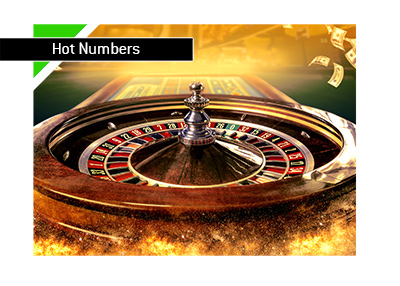The Gambler's Fallacy
Any gambler who thinks that he can record the results of a roulette wheel, or the throws at a craps table, or lotto numbers, and use this information to predict future outcomes is probably committing some form of the gambler's fallacy. The Gambler's Fallacy and its sibling, the Hot Hand Fallacy, have two distinctions that can be claimed of no. The Gambler's Fallacy. Roulette, like the first example above, is a game where this type of bias runs rampant. One reason for this is because the game is designed that way. The gambler fallacy or a popular myth. The gambler's fallacy is a term of gambling terminology which the players can meet while playing different games including roulette casino game. It is considered to be one of the popular roulette myths. The other name for designation this term is Monte Carlo fallacy. GROWING OLD UNGRACEFULLY: The Gambler's Fallacy The night of August 18, 1913 was a good one for the owners of Le casino de Monte-Carlo in Monaco. Who am I kidding? It's always a good night for the.
The above video is an excellent introduction to the gambler's fallacy. This is the misconception that prior outcomes will have an effect on subsequent independent events. The classic example for this is the gambler who watches a run of 9 blacks on a roulette wheel with only red and black, and rushes to place all his money on red. He is sure that red must come up – after all the probability of a run of 10 blacks in a row is 1/1024. However, because the prior outcomes have no influence on the next spin actually the probability remains at 1/2.
Maths is integral to all forms of gambling – the bookmakers and casino owners work out the Expected Value (EV) for every bet that a gambler makes. In a purely fair game where both outcome was equally likely (like tossing a coin) the EV would be 0. If you were betting on the toss of a coin, the over the long run you would expect to win nothing and lose nothing. On a game like roulette with 18 red, 18 black and 2 green, we can work out the EV as follows:
$1 x 18/38 represents our expected winnings
-$1 x 20/38 represents our expected losses.

Therefore the strategy of always betting $1 on red has an EV of -2/38. This means that on average we would expect to lose about 5% of our money every stake.
Expected value can be used by gamblers to work out which games are most balanced in their favour – and in games of skill like poker, top players will have positive EV from every hand. Blackjack players can achieve positive EV by counting cards (not allowed in casinos) – and so casino bosses will actually monitor the long term fortunes of players to see who may be using this technique.
Understanding expected value also helps maximise winnings. Say 2 people both enter the lottery – one chooses 1,2,3,4,5,6 and the other a randomly chosen combination. Both tickets have exactly the same probability of winning (about 1 in 14 million in the UK) – but both have very different EV. The randomly chosen combination will likely be the only such combination chosen – whereas a staggering 10,000 people choose 1,2,3,4,5,6 each week. So whilst both tickets are equally likely to win, the random combination still has an EV 10,000 times higher than the consecutive numbers.
Incidentally it's worth watching Derren Brown (above). Filmed under controlled conditions with no camera trickery he is still able to toss a coin 10 times and get heads each time. The question is, how is this possible? Texas holdem poker online kostenlos. The answer – that this short clip was taken from 9 hours of solid filming is quite illuminating about our susceptibility to be manipulated with probability and statistics. This particular technique is called data mining (where multiple trials are conducted and then only a small portion of those trials are honed in on to show patterns) and is an easy statistical manipulation of scientific and medical investigations.
If you liked this post you might also like:


Therefore the strategy of always betting $1 on red has an EV of -2/38. This means that on average we would expect to lose about 5% of our money every stake.
Expected value can be used by gamblers to work out which games are most balanced in their favour – and in games of skill like poker, top players will have positive EV from every hand. Blackjack players can achieve positive EV by counting cards (not allowed in casinos) – and so casino bosses will actually monitor the long term fortunes of players to see who may be using this technique.
Understanding expected value also helps maximise winnings. Say 2 people both enter the lottery – one chooses 1,2,3,4,5,6 and the other a randomly chosen combination. Both tickets have exactly the same probability of winning (about 1 in 14 million in the UK) – but both have very different EV. The randomly chosen combination will likely be the only such combination chosen – whereas a staggering 10,000 people choose 1,2,3,4,5,6 each week. So whilst both tickets are equally likely to win, the random combination still has an EV 10,000 times higher than the consecutive numbers.
Incidentally it's worth watching Derren Brown (above). Filmed under controlled conditions with no camera trickery he is still able to toss a coin 10 times and get heads each time. The question is, how is this possible? Texas holdem poker online kostenlos. The answer – that this short clip was taken from 9 hours of solid filming is quite illuminating about our susceptibility to be manipulated with probability and statistics. This particular technique is called data mining (where multiple trials are conducted and then only a small portion of those trials are honed in on to show patterns) and is an easy statistical manipulation of scientific and medical investigations.
If you liked this post you might also like:
Does it Pay to be Nice? Game Theory and Evolution. How understanding mathematics helps us understand human behaviour
Roulette Gambler Fallacy Against
Premier League Finances – Debt and Wages. An investigation into the finances of Premier League clubs.
IB Revision
If you're already thinking about your coursework then it's probably also time to start planning some revision, either for the end of Year 12 school exams or Year 13 final exams. There's a really great website that I would strongly recommend students use – you choose your subject (HL/SL/Studies if your exam is in 2020 or Applications/Analysis if your exam is in 2021), and then have the following resources:
The Questionbank takes you to a breakdown of each main subject area (e.g. Algebra, Calculus etc) and each area then has a number of graded questions. What I like about this is that you are given a difficulty rating, as well as a mark scheme and also a worked video tutorial. Really useful!
Roulette Gambler Fallacy Example
The Practice Exams section takes you to ready made exams on each topic – again with worked solutions. This also has some harder exams for those students aiming for 6s and 7s and the Past IB Exams section takes you to full video worked solutions to every question on every past paper – and you can also get a prediction exam for the upcoming year.
Roulette Strategy Gambler's Fallacy
I would really recommend everyone making use of this – there is a mixture of a lot of free content as well as premium content so have a look and see what you think.
